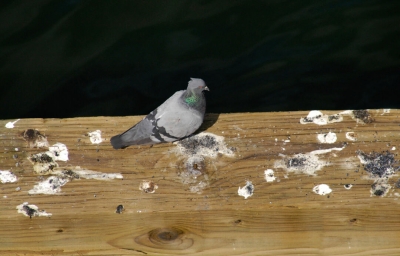
Pigeon poop was popular as a natural fertilizer, and highly prized in countries like Persia (now Iran) and France. Remember the dovecotes? It is said that in the 18th Century, King George I of England declared all pigeon droppings to be the property of the Crown as the manure was used in making gunpowder. Saltpetre (potassium nitrate), an important ingredient in gunpowder, was extracted from pigeon poop.
The use of pigeon guano as fertilizer continued throughout history up until the development of agribusiness that resulted in cheaper more efficient means of fertilizer. In early history however, it’s plausible to suggest that the domestication of pigeons led to advances in the ability to grow the best possible crops. There is also evidence that pigeon poop is a better fertilizer than other farm animal manure, which ultimately could have led to the development of more efficient agrarian societies. The importance of the discovery of pigeon poop as a fertilizer certainly had a great influence on the history of human agriculture.
Today of course saltpeter can be synthesized with modern chemistry however in a historical context pigeon guano would have been a valuable commodity in earlier history when other sources were not as abundant or still largely undiscovered. In 16th century England, the humble pigeon was the only source of saltpeter, giving pigeons a huge role in the combative effectiveness of the English during this period. Perhaps pigeon poop was an important factor in the outcomes of some of the first wars involving guns, potentially changing the flow of history.
Picture Credit : Google




